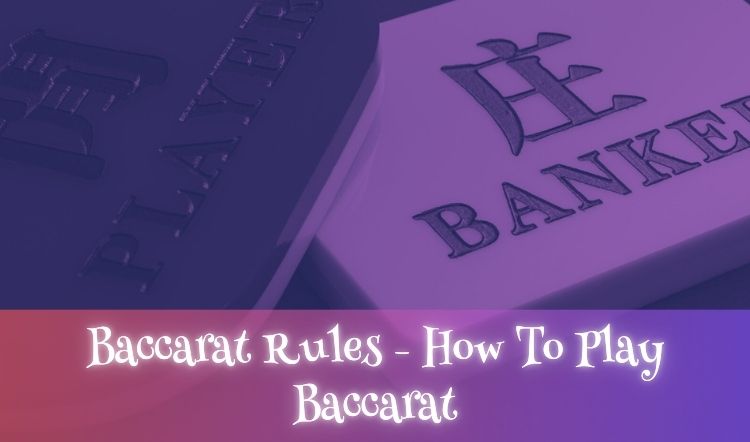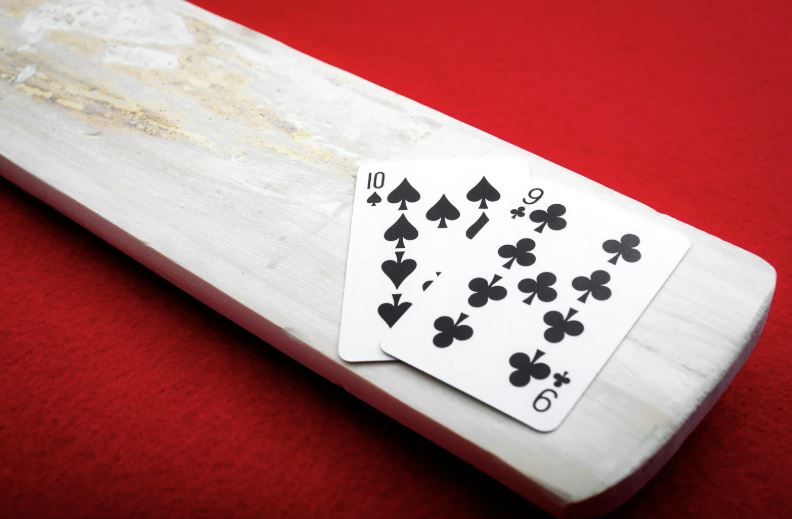
Baccarat is a traditional casino table game that has maintained a steady presence in both land-based and online casinos. While it’s often associated with glamour and high-stakes play, the game itself is relatively simple and doesn’t require much strategy from players.
Still, baccarat can seem confusing if you’re entirely unfamiliar with how the game works. In this blog post, we will explain what the objective of the game is and how to play it. Read on to learn more.
Is It Easy To Learn Baccarat?
Baccarat is relatively easy to learn compared to many other table games. While it may be known as James Bond’s game of choice, its appeal lies in its simplicity and slow pace. Unlike games such as poker, which require strategy and skill, baccarat doesn't demand much more than placing a bet on one of three possible outcomes.
Playing baccarat is simple if you stick to the following steps:
-
Set a budget and stick to it.
-
Place your bets before the cards are dealt.
-
Understand how the round works—for example, each side receives two cards, and there's a point system to follow.
-
Know what constitutes a winning hand.
With these simple steps in mind, you should quickly get the hang of baccarat if you intend to play.
What Is The Objective Of Baccarat?
Baccarat is played with two hands: the Banker and the Player. It’s important to note that these names don’t refer to the actual player or the casino, but are simply labels for the hands. The aim of the game is to place a bet on one of three possible outcomes: the Banker hand winning, the Player hand winning, or a tie.
The winning hand is the one with the total value closest to 9. Occasionally, a third card may be drawn for either hand, but this is determined by the dealer following a set of predetermined rules. Let’s explore how this works in more detail.
Baccarat Rules
The core of baccarat is simple: bet on which outcome you believe is most likely—either the Banker or Player hand will win, or the round will end in a tie. The hand with the total value closest to 9 wins.
Each card holds a specific value:
-
An Ace is worth 1 point.
-
Cards 2 to 9 are worth their face value.
-
10s and face cards (Jack, Queen, King) are worth 0 points.
If a hand’s total exceeds 9, only the last digit is counted. For instance, if a hand totals 14, it counts as 4, or if it totals 17, it counts as 7.
If either hand totals 8 or 9 with the initial two cards, this is called a ‘natural’ and automatically wins the round, without the need for a third card.
In some cases, however, a third card will be drawn for a hand. The rules for when this happens are different for the Player and the Banker hands:
-
Player Hand: If the Player’s hand totals between 0 and 5, the dealer draws a third card. If the Player has a total of 6 or 7, they stand, and no third card is drawn. A total of 8 or 9 is a natural, so no third card is needed.
-
Banker Hand: If the Player stands (only has two cards), the Banker will draw a third card if their total is between 0 and 5, and will stand if their total is 6 or 7.
If the Player has drawn a third card, the Banker’s decision to draw or stand is based on both their current total and the Player's third card.
How To Play Baccarat (For Beginners)
In baccarat, the main objective is to bet on which hand you think will win—either the Banker or the Player. However, there’s also a third option: a tie. A tie occurs when the Banker and Player hands have the same total points.
It's important to note that each type of bet comes with different odds in baccarat. For instance, betting on the Banker hand carries a house edge of around 1.06%, while betting on the Player hand has a slightly higher house edge of approximately 1.24%. Betting on a tie, however, has a significantly higher house edge of around 9.5%.
If you bet on the Player or Banker hand and win, you’ll typically receive a payout at even money (1:1). If you bet on the Banker and win, the casino takes a 5% commission due to the slightly better odds of the Banker hand winning (lower house edge). A winning tie bet typically pays out at 8:1, though this may vary between UK casinos, so it’s always worth checking the payout rules prior to playing if you intend to play.
As mentioned earlier, whether the Banker draws a third card depends on the Player’s hand. If the Player does receive a third card, the Banker’s decision to draw a third card is based on their total score. Here’s how it works:
-
If the Banker’s total is 0, 1, or 2, they will always receive a third card, regardless of the Player’s third card.
-
If the Banker’s total is 3, they will receive a third card unless the Player’s total is 8.
-
If the Banker’s total is 4, they will draw a third card if the Player’s third card is between 2 and 7.
-
If the Banker’s total is 5, they will draw a third card if the Player’s third card is between 4 and 7.
-
If the Banker’s total is 6, they will draw a third card if the Player’s third card is a 6 or 7.
-
If the Banker’s total is 7, they stand and do not draw a third card.
The dealer is the one who follows these rules and determines when third cards should be drawn. If you’re playing, after you place a bet on the Player, Banker, or a tie, the dealer will continue with the game and settle the bets. You don’t need to make any decisions regarding the third cards.
Conclusion
Baccarat might seem a little confusing at first, but once you understand the basics and watch a few hands played out, it quickly becomes easier to follow.
The key thing to remember is that, if you choose to play, your main role in the game is simply to place a bet on one of three possible outcomes: the Player hand winning, the Banker hand winning, or a tie.
As with all casino games, it's important to gamble responsibly. Only bet what you’re comfortable losing, and keep in mind that baccarat is a game of chance—no outcome is ever guaranteed.
*All values (Bet Levels, Maximum Wins, etc.) mentioned in relation to this game are subject to change at any time.
**The information provided in this blog is intended for educational purposes and should not be construed as betting advice or a guarantee of success. Always gamble responsibly.
